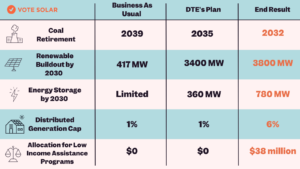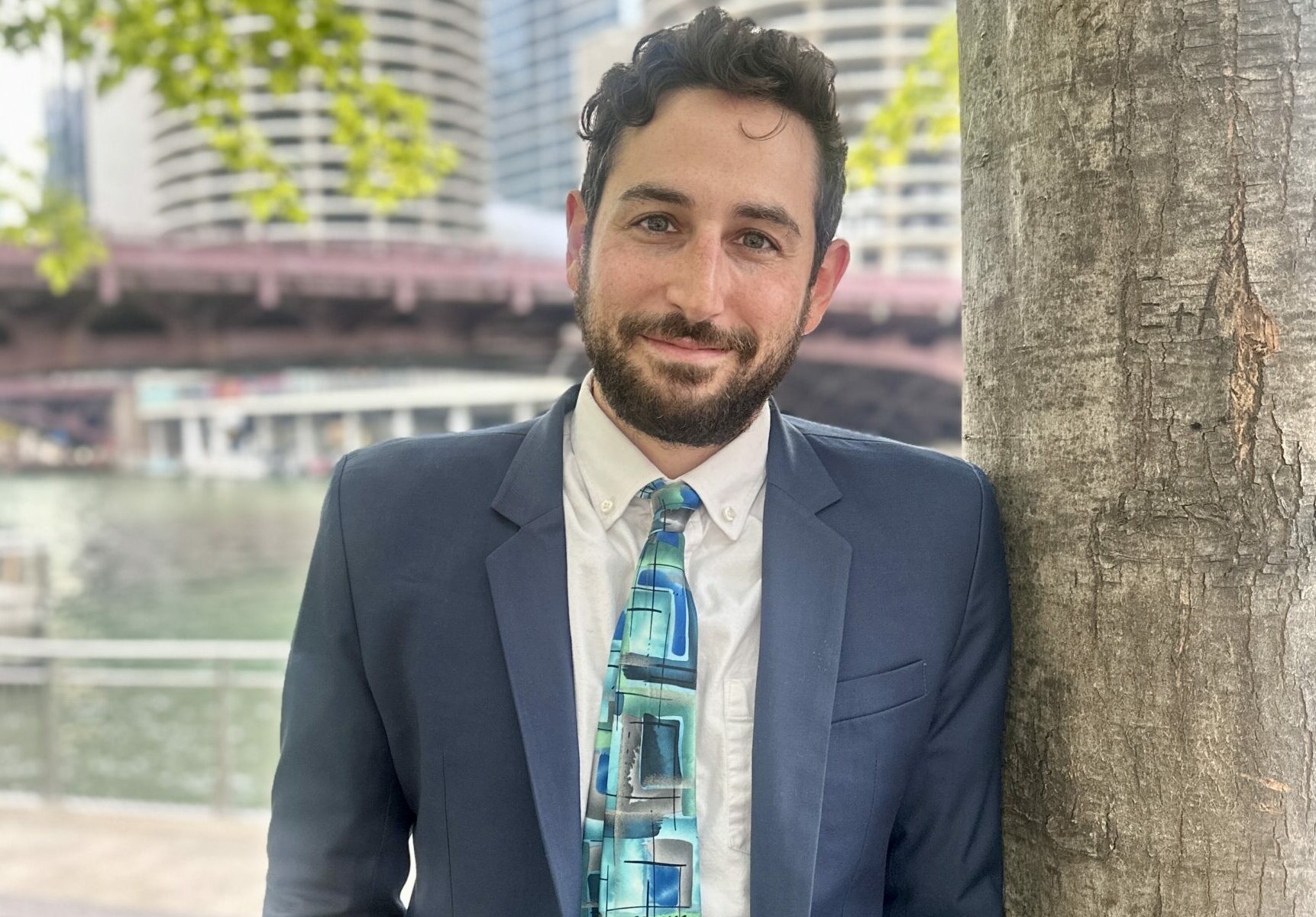August 16, 2023
Standing Together for Michigan Communities
How a “people powered” settlement with Detroit's DTE Energy sets a new standard for utilities
The recent settlement ELPC, our clients, and fellow advocates brokered with Detroit-based power company DTE Energy will result in thousands of megawatts of renewable energy added to the grid, millions of dollars of investment in low-income communities and earlier retirement for DTE’s coal plants, making Michigan the first Midwest state entirely off coal.
It was, in the words of one of our clients, nationally recognized energy expert Will Kenworthy of Vote Solar, “one of the biggest regulatory wins I’ve ever seen.”
This was part of an Integrated Rate Plan, a roadmap that utilities must create and regulators must approve for keeping up with expected energy demands. In Michigan, these plans must cover a 30-year window. The utility proposes a plan and various groups like ELPC intervene in the process, negotiating and fighting for a plan that better preserves our environment and defends our billpayers.
To me, what made this settlement in DTE’s IRP stand out is the convergence of technical know-how with people power. We stood together. A diverse group of Detroit-area community organizations and national clean energy organizations banded together and negotiated collectively to get the best deal possible out of the company.
It’s not just decarbonizing and it’s not just focusing on equity and environmental justice issues. It’s marrying those two concepts in a way that – if DTE seizes the opportunity – we hope will set a new standard nationwide.
A ‘No Regrets’ Approach
This settlement has set the terms for DTE to move forward with decarbonization faster and better than they possibly could have otherwise. They have the tools to avoid a gas plant in the 2030s.
Part of this is what we call our no regrets approach. “No regrets” means DTE should build as much clean energy as it can as fast as it can. Low-cost renewables will displace higher-cost, polluting fossil fuel resources, saving customers money.
Utilities set very detailed renewable energy targets in these IRPs. To create a hypothetical example, let’s say a utility’s target is building 600 megawatts of renewable energy in 2026, another 600 megawatts the next year and so on.
The next step is to get bids from contractors and the other companies needed to build the solar arrays, wind turbines, battery storage or other projects. The utility then takes the bids back to the Michigan Public Service Commission and gets “cost approval,” the right to raise customers’ bills to cover the projects’ cost.
What this settlement says is if DTE gets reasonable bids above their target – to go back to our hypothetical example, a bid that would produce 700 megawatts by 2026, or 800, or 900 – they should take the bid, confident that the MPSC will grant cost approval. It’s cost pre-approval.
The settlement calls for 3,800 new megawatts of renewable energy by 2030, but if DTE takes advantage of this opportunity, that number is a floor, not a ceiling.
The onus is on DTE now to build as much renewables and storage as fast as they can – with no regrets. If DTE seizes the opportunity, Michigan can get out of coal without replacing it with a natural gas plant.
This settlement laid the groundwork for them to do that.
The Affordability Gap
By federal standards, if your energy bill is below 6 percent of your income, your bills are considered affordable.
About 600,000 DTE customers – nearly 30 percent of their customer base – have bills beyond that 6 percent mark, meaning they face unaffordable bills. They face difficult choices between operating their essential electrical appliances and paying for food, medicine and other bills.
These hard choices are not distributed evenly. DTE’s rural customers and customers in low-income historically redlined communities typically spend 15 percent or more of their total income on energy costs.
The “affordability gap” between what DTE customers are paying and what they could afford to pay tops $800 million, with $650 million of that coming from low- and middle-income households.
The settlement includes a $30 million contribution from the company for direct bill relief. This is an important, necessary measure that will help Michigan families. Eventually, though, those funds will run out.
One aspect of the settlement I’m personally very excited about, thrilled in fact, is an additional $8 million contribution for renewable, storage and energy efficiency programs for low-income communities to help the environment, lower bills and ensure an equitable transition to renewable power. The communities that have historically been hurt most by pollution from coal and gas should not be left behind as the nation transitions to wind and solar.
The direct bill relief and the $8 million investment work together. One will help people facing high DTE bills today. One will lower bills in a sustainable fashion tomorrow and beyond.
More Work Ahead
There’s a growing awareness in Michigan, Minnesota, and across the nation that how we get our electricity isn’t just a consumer issue or a climate change issue. It’s a social issue.
By bringing together clean energy organizations Vote Solar, Union of Concerned Scientists, and the Ecology Center and Detroit-area advocacy groups Soulardarity and We Want Green, Too, these negotiations showed the power we have when we stand together.
But our movement is limited by old laws designed around outdated technology and utility interests.
Our colleagues at Soulidarity and We Want Green, Too, laid out a legislative pathway by which state lawmakers can turn these victories into real, lasting change for Michigan. They – and we – want the legislature: to allow true community solar; to enable the MPSC to consider affordability, equity, and climate change in future decisions; to expand equitable credits for solar and storage; to enact robust outage crediting; to solidify equitable decarbonization goals; to solidify equitable decarbonization goals; and to invest public money into the energy transition.
ELPC and our partner groups will continue to work with DTE and the Michigan Legislature – and hold them accountable every step of the way – to ensure these opportunities are seized and that Michigan gets to the climate future it deserves.



